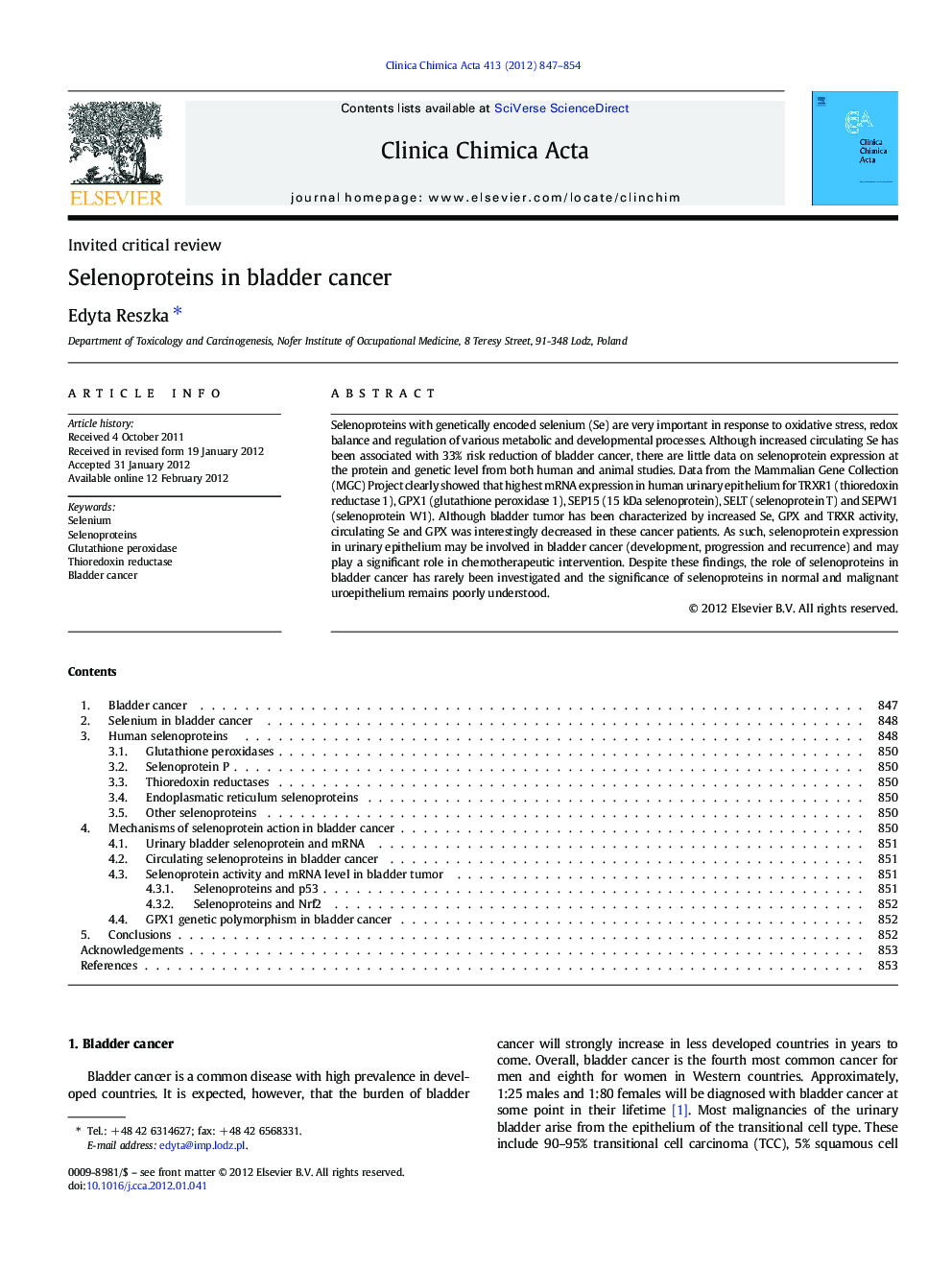| Article ID | Journal | Published Year | Pages | File Type |
|---|---|---|---|---|
| 1965874 | Clinica Chimica Acta | 2012 | 8 Pages |
Selenoproteins with genetically encoded selenium (Se) are very important in response to oxidative stress, redox balance and regulation of various metabolic and developmental processes. Although increased circulating Se has been associated with 33% risk reduction of bladder cancer, there are little data on selenoprotein expression at the protein and genetic level from both human and animal studies. Data from the Mammalian Gene Collection (MGC) Project clearly showed that highest mRNA expression in human urinary epithelium for TRXR1 (thioredoxin reductase 1), GPX1 (glutathione peroxidase 1), SEP15 (15 kDa selenoprotein), SELT (selenoprotein T) and SEPW1 (selenoprotein W1). Although bladder tumor has been characterized by increased Se, GPX and TRXR activity, circulating Se and GPX was interestingly decreased in these cancer patients. As such, selenoprotein expression in urinary epithelium may be involved in bladder cancer (development, progression and recurrence) and may play a significant role in chemotherapeutic intervention. Despite these findings, the role of selenoproteins in bladder cancer has rarely been investigated and the significance of selenoproteins in normal and malignant uroepithelium remains poorly understood.
► TRXR1, GPX1, SEP15, SELT and SEPW1 present the highest mRNA expression in human urinary epithelium. ► Bladder tumor has been characterized by increased Se level, GPX and TRXR activity. ► Extensive studies of selenoprotein in bladder cancer are clearly warranted.
